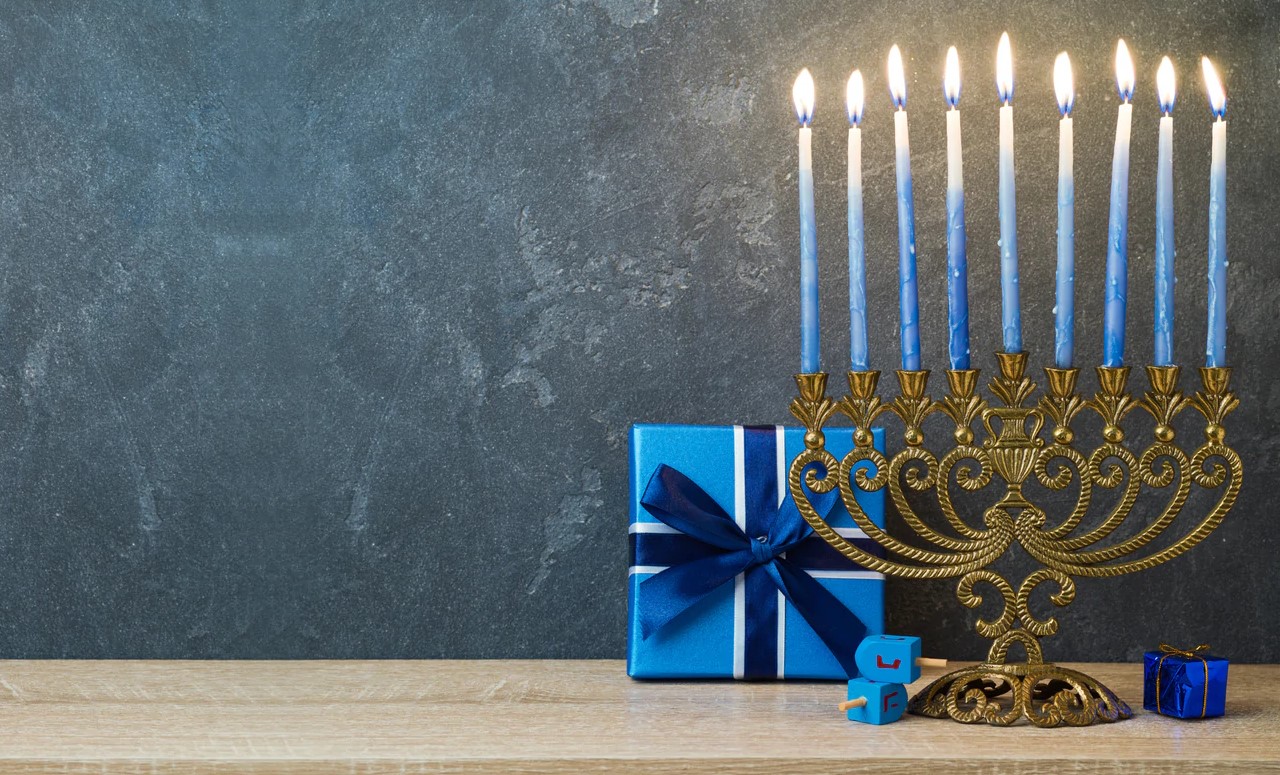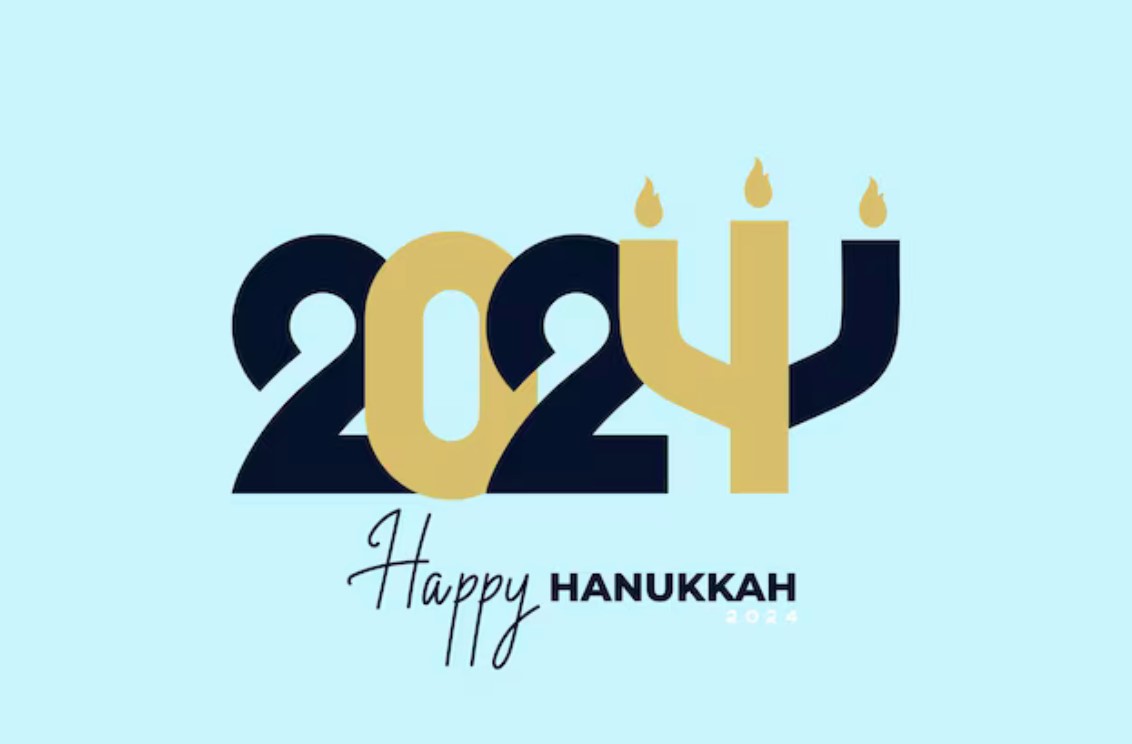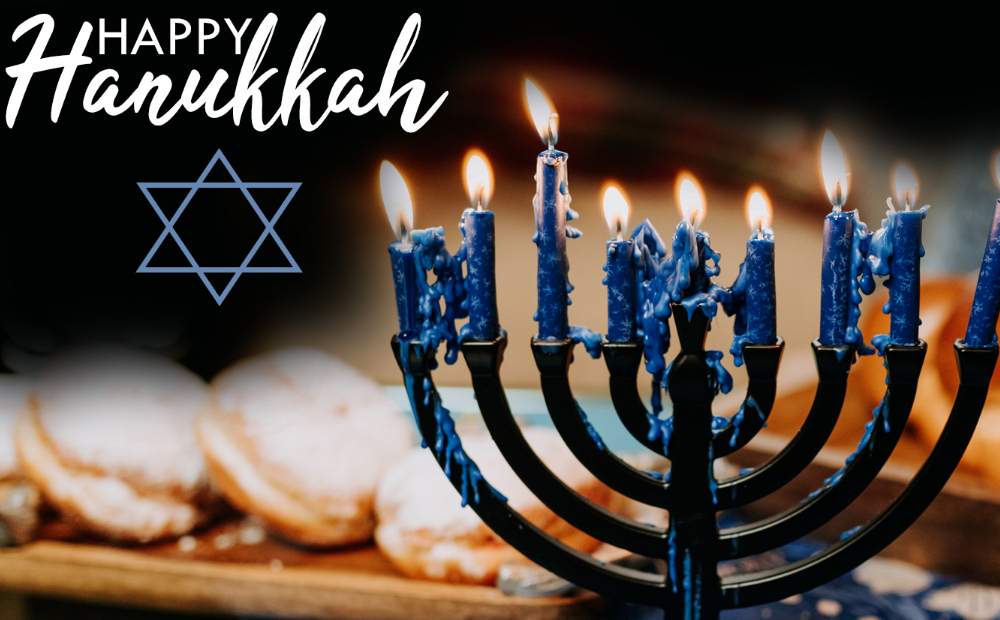Happy Hanukkah 2024: Best Wishes, Images & Quotes

Happy Hanukkah 2024 Best Wishes, Images & Quotes starts at sunset on December 26, 2024, and lasts for eight days, until it ends at sunset on December 26, 2023. Every year, on the Hebrew calendar date of 25 Kislev, which often falls in December on the Gregorian calendar, the Jewish Festival of Rededication, also known as the Festival of Lights, is an eight-day festival. (Hanukkah takes place from December 26 to December 26 in 2022.) Chanukah, another name for Hanukkah, commemorates the rededication of the second Jewish temple in Jerusalem.
Happy Hanukkah 2024: WHEN IS IT?
The Hebrew holiday of Hanukkah, which translates as “dedication,” begins on the 25th of Kislev. It often falls in November or December. The menorah is lit to commemorate the occasion, which is also known as the Festival of Lights. Additionally, customary dishes, entertainment, and presents are consumed.
HANUKKAH’S HISTORY
Happy Hanukkah or Chanukah, an eight-day Jewish festival, honors the rededication of the Second Temple in Jerusalem during the second century B.C. when Jews had rebelled against their Greek-Syrian captors during the Maccabean Revolt. These Jews are referred to as the Maccabees. Mi Kamocha Ba’eilim Hashem, which translates to “Who is like You, God,” is a statement in Hebrew that served as the foundation for the name.
Like the histories of many religious or ancient holidays, Hanukkah’s history has several beginning and conclusion points. The incidents that gave rise to the Hanukkah festival occurred during a particularly difficult period in Jewish history. Judea, which includes modern-day Israel and Palestine, came under the rule of Antiochus III, the Seleucid monarch of Syria, around 200 B.C.
He let the Jews who resided there carry on their religious practices. Antiochus IV Epiphanes, his son, turned out to be less kind. He forbade Jews from practicing their faith and commanded them to worship Greek deities, according to historical accounts.

Happy Hanukkah 2024
Soldiers under Antiochus IV Epiphanes invaded Jerusalem in 168 B.C. slaughtering thousands of people and desecrating the Second Temple by building an altar to Zeus and offering pig sacrifices inside its holy walls.
Large-scale insurrection against Antiochus and the Seleucid dynasty erupted under the leadership of the Jewish priest Mattathias and his five sons. Judah Maccabee, also known as “the Hammer,” succeeded his father Matthathias when he passed away in 166 B.C. The Jews successfully expelled the Syrians from Jerusalem in less than two years, largely using guerilla tactics.
The uprisings were successful, and the Jews were given back their right to worship in their temples. Judah instructed his followers to clean the temple and burn a menorah with oil blessed by the high priest. All night every night until the new altar could be erected over the old one in order to accomplish this. This is the gold candelabrum, whose seven branches stood for knowledge and creation. They were intended to burn continuously through the night.

Finally:
However, the last flask of oil had only enough oil for one night. Nevertheless, they lit it, and it burned for the required eight days to press new oil. One of Judaism’s most important texts, the Talmud, claims that Judah Maccabee and the other Jews. Who participated in the rededication of the Second Temple saw. What they took to be a miracle.
Even though there was only enough pure olive oil to light the menorah’s candles for one day. The flames flickered for eight nights, giving them time to locate new oil. The Jewish sages declared an annual eight-day festival as a result of this wonderful occurrence.
The Torah does not contain the Hanukkah story. Because the events that gave rise to the holiday happened after it was written. However, the New Testament mentions it, mentioning that Jesus attends a “Feast of Dedication.”

